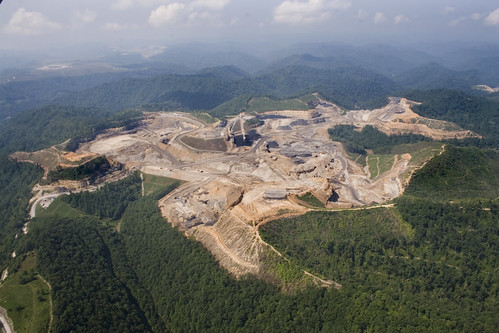Today the National Wildlife Federation learned the Senate version of tax legislation includes subsidies for liquid coal fuels. Section 704 of the Senate tax bill as written right now would extend the Alternative Fuel Tax Credit to liquid coal, giving a 50-cent tax credit for each gallon of liquid coal sold or used in a fuel mixture. While many senators have fought to include important clean energy provisions in the the tax package, the National Wildlife Federation strongly opposes expanding alternative fuel tax credits to cover dirty liquid coal.
Why? For starters, the provision could cost taxpayers $400 million per plant, every year. That's on top of the subsidy coal already receives by not having to pay for its pollution -- today in America, polluters can dump as much carbon pollution as they want into our atmosphere free of charge.
The carbon-intensive process of turning coal into liquid fuel is only part of the equation. The liquid coal is then burned by the vehicle, where it emits even more carbon pollution than traditional gasoline, along with plenty of other pollutants to the air in our communities. And of course there are all the ecological risks linked to coal mining -- habitat loss, ground water contamination & mountaintop removal.
 Why does the coal industry need these huge subsidies?
The coal business is in the black these days (no pun intended). Peabody Energy,
the largest private-sector coal company in the world, just reported its profits doubled the last quarter to $224 million in
just those three months.
Why does the coal industry need these huge subsidies?
The coal business is in the black these days (no pun intended). Peabody Energy,
the largest private-sector coal company in the world, just reported its profits doubled the last quarter to $224 million in
just those three months.
But while coal-fired electrical power is incredibly profitable, producing dirty liquid coal fuels is phenomenally expensive. Liquid coal facilities cost as much as $6 billion for a single plant.
The bottom line is, liquid coal can't stand on its own two legs. It needs massive subsidies from Congress AND it needs to be able to treat our atmosphere like an open sewer. If both of those things aren't true, liquid coal simply can't compete with cleaner energy sources.